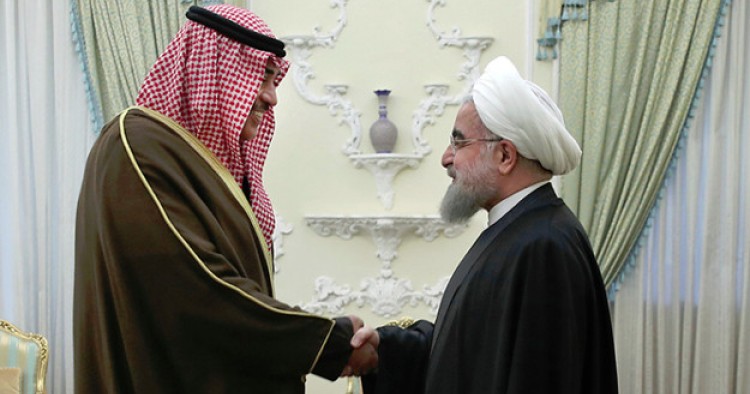Kuwaiti Foreign Minister Sheikh Sabah Khaled al-Sabah has arrived in Tehran today to deliver a message from Gulf Cooperation Council (GCC) on a strategic dialogue between the Gulf Arab states and Iran, the Iranian and Arab media report. "Gulf states have a true desire that relations with Iran are normal and based on international law," Sabah said on Tuesday after attending the inauguration of a NATO center in Kuwait.
The message reportedly also calls on Iran to stop meddling in GCC states’ internal affairs, particularly in Bahrain, and end financial and arms support for Lebanese Hezbollah and the Houthis in Yemen. After arriving in Tehran, Sabah met with his Iranian counterpart Javad Zarif and is scheduled to discuss regional affairs with Iranian President Hassan Rouhani as well.
Sabah’s visit comes just days after Rouhani said Kuwait and several other countries had offered to mediate to resolve the escalating tension between Tehran and Riyadh.
Relations between the Gulf Arab states and Iran plunged to a new low a year ago when Saudi Arabia and Bahrain severed diplomatic ties with Tehran following mob attacks on Saudi embassy in Tehran and consulate in Mashhad. The United Arab Emirates and Kuwait also recalled their ambassadors.
But if commentaries in the Iranian state-run media and statements made by Iranian leaders are any indication, the GCC move to foster dialogue and cooperation with Tehran is unlikely to yield positive results. This is because Tehran sees the GCC overture as a sign of weakness rather than a gesture of goodwill.
The semi-official Iranian News Agency wrote that the main reason behind Riyadh’s “softening positions vis-à-vis Tehran” is an understanding by Saudi officials that they “are left behind in the Syrian marathon.” That is why, it reasoned, Riyadh “demonstrates signs of weakness in its reassessment of some of its policies.”
A commentary in Fars News Agency, a mouthpiece of the Islamic Revolution Guards Corps (IRGC), claimed that the United States and France have told Saudi leaders that enmity with Iran would harm regional stability and Riyadh’s interests. “The atmosphere in the region – different scenarios in Iraq, Syria, Lebanon, Yemen and Bahrain – has degraded the position of Saudi Arabia,” Hadi Mohammadi, an Iranian analyst of Middle East affairs, told Fars News Agency. “The coming [to power] of Trump is also not good news for Saudi authorities, and the Trump administration will certainly implement more stringent measures against Saudi Arabia,” he added. “For this reason, we see two reactions from the Saudi Arabia’s government. One is inviting Iran’s Hajj [pilgrimage] organization for next year’s Hajj program; and the other is sending Kuwaiti foreign minister to Tehran to convey Saudi government’s messages to Tehran.”
The Middle East Institute (MEI) is an independent, non-partisan, non-for-profit, educational organization. It does not engage in advocacy and its scholars’ opinions are their own. MEI welcomes financial donations, but retains sole editorial control over its work and its publications reflect only the authors’ views. For a listing of MEI donors, please click here.













